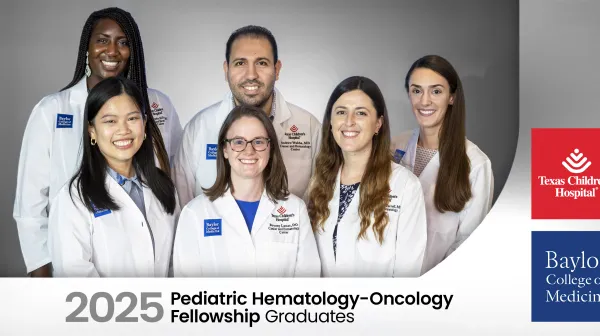As the nation’s No. 1 hospital for pediatric cardiology, Texas Children’s Heart Center leads not only the diagnosis and treatment of pediatric cardiac conditions, but also the training of future pediatric cardiologists through its Pediatric Cardiology Fellowship program in partnership with Baylor College of Medicine. Led by Program Director William Kyle, MD, pediatric cardiologist, the program aims to continually adapt to the needs of its fellows in order to offer the most productive educational experience possible.
“We’re privileged to have a great reputation, but we’re never satisfied by maintaining the status quo,” Dr. Kyle said. “We’re continually striving to improve, with changes guided by our current fellows.”
Driven by a legacy of excellence
Texas Children’s fellowship, which consists of 3 years of clinical and research training, was initially established by Dan McNamara, MD, Houston’s first pediatric cardiologist, who founded Texas Children’s heart program in the 1950s. Dr. McNamara is credited as a gifted educator and mentor, establishing a culture that lives on in the program to this day.
Today, very few centers can offer fellows an experience like the one at Texas Children’s. The program welcomes 7 new fellows each year, making it one of the largest pediatric cardiology fellowship programs in the country. Trainees are exposed to the most complex cardiac cases in the world, surrounded by faculty who are national and international leaders in their specialties with a passion for educating the next generation of physicians.
“Not only are our faculty widely known and respected, but they’re also very accessible and receptive to fellows’ needs and input,” said Dr. Kyle, a former Texas Children’s fellow himself. “We like to tell prospective fellows ‘We do world-class cardiology and we’re nice about it.’”
When selecting fellows, the team intentionally selects not only high-scoring candidates with great training, but also those who demonstrate a personality and work ethic that ensure a good cultural fit. In the first year, the trainee rotates through echocardiography, electrophysiology, cardiac catheterization, cardiovascular critical care and inpatient services. Second- and third-year fellows rotate through those clinical areas as well as additional subspecialties, such as adult congenital heart disease and heart failure. The curriculum also includes elective time and 12 months of research. Fourth-year advanced training opportunities have traditionally been offered in every subspecialty.
Flexible and adaptable to each fellow’s needs
While the program maintains a rigorous curriculum designed to help trainees take advantage of every opportunity within the Heart Center, it’s also very much focused on incorporating flexibility, including training pathways uniquely available at Texas Children’s.
“We’re very receptive and open to developing unique training programs,” Dr. Kyle said. “We’ve worked with past fellows to develop training that combines cardiac imaging with quality improvement or heart failure and palliative care, for example, partnering with colleagues both within and outside the Heart Center. We’re also offering training in cardiovascular genetics, which isn’t often found at other centers.”
In terms of research, the program’s Research in Fellowship Training, or RIFT, offers fellows the opportunity to systematically work through a clinical research project of their choosing. This series, facilitated by faculty with outstanding publication records, enables even the least experienced trainee to take the steps necessary to bring a project to completion, culminating with a presentation by the fellow at a national meeting and a publication in a peer-reviewed journal. For those more experienced with the research and publication process, RIFT provides an opportunity to have a faculty member review progress made independently by the fellow.
“Through RIFT and other faculty mentorship, our fellows are very productive in research, having published 204 manuscripts over the past 5 years,” Dr. Kyle said.
The fellowship program leadership meet with fellows every Friday to celebrate successes as well as discuss opportunities for improvement. As a result, fellows have an opportunity to voice feedback, which then drives future program enhancements.
“Many of the changes we implement are based on direct feedback,” Dr. Kyle said. “For example, we’ve developed new electives in which fellows can rotate in clinics with unique Texas Children’s subspecialty services, such as our Coronary Anomalies, Pulmonary Vein Stenosis and Single Ventricle programs, so they can really leverage the experience of our TCH experts and benefit from these services.”
Learn more about Texas Children’s Pediatric Cardiology Fellowship, including requirements, deadlines and how to apply.





